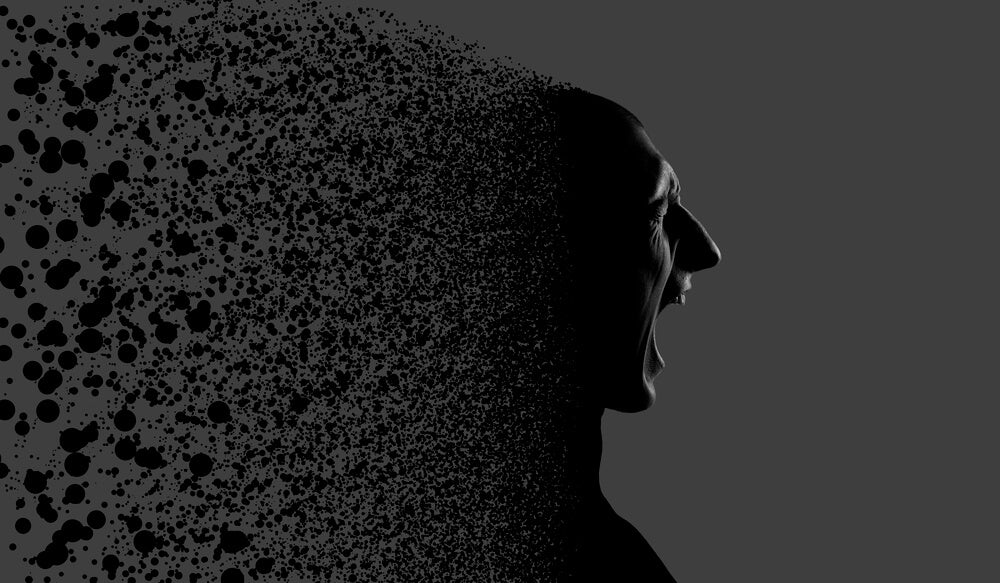Theoretically we all seek happiness and act with this feeling like the north, in practice many human beings do not fall into this pattern, on the contrary. Not knowing why, people sometimes take actions that end up hurting, in this case we’re talking about a self-destructive person.
We believe that a self-destructive person behaves and that is because he really wants to be so, but what usually happens, however, is that the person feels bad but cannot identify exactly the reason, and also the behaviors that hurt him. and others.
- We all have a facet like that in us.
- Some.
- However.
- Turn this part of their personality into their own integral “I”.
- What happens to a self-destructive person is that she often punishes herself for feelings of guilt related to non-existent or imaginary events.
- So the following are the 7 most notable traits of a self-destructive person.
“In the history of men, every act of destruction finds an answer, sooner or later, in an act of creation. “- Eduardo Galeano-
Although it may seem very strange, a self-destructive person feels an unspeakable void when he achieves an important goal, even if you have fought hard for it, when you finally reach it, you cannot feel any satisfaction.
How he feels about his triumphs is a certain sadness and often even rage, which almost always ends up minimizing your success. He says it’s absurd to be happy about something so small, it’s a clear sign that the person is self-destructive.
A self-destructive person can be quite conflicted. He doesn’t know why, but he can’t help this tendency to generate controversy over everything that’s going on either. In extreme cases, if others say “yes,” she says “no. “If they say “white, ” she says “black. “
In discussions with others it is not difficult for verbal assaults or rude expressions to occur, however, once the storm has passed and subsided, the person feels terribly guilty about producing or putting firewood into the fire of the dispute. what they said or how they said something.
For someone who is self-destructive, nothing is enough. Their main difficulty is to feel satisfaction, especially with something they themselves have sought, achieved or idealized. They always focus on the negatives of the thing, ignoring the positive parts of everything.
If, by chance, the person feels good and realizes it, it can even cause pain. You will think that something is wrong, that you are deceived, you may even be confused. He will seek in himself reasons to stop feeling good and to confirm his subjective position of discomfort.
The self-destructive person is boycotting. It should be noted that this occurs most of the time unconsciously, so you forget the crucial dates, or fall asleep when you have an important appointment, or confuse the time of it.
It is as if it is imperative for them to escape any form of well-being they might have access to, when they miss great opportunities, because of these apparent oversights and distractions, they really find a new reason to continue punishing themselves. .
Not only is it good, but also very constructive to do something for others; in the case of the self-destructive person, however, this type of act that would be altruistic takes on a different meaning. beyond to improve the lives of those around them.
They renounce their well-being with relative ease and entrust it to someone else, they are able to run out of money in their wallet to help someone or to give others something that would be very valuable to them, but in the end, this excessive generosity is a form of personal punishment. The person feels guilty about something, usually imaginary, and wants to make amends one way or another.
A self-destructive person does not know how to defend himself, in fact, he does not even feel that he has the right to protect his interests, his self-esteem is very low and, therefore, he feels that it is not possible or worth spending enough resources to avoid hurting himself.
One way or another, such people believe that others have more rights, including the right to abuse them. Many of his self-destructive behaviors begin with some form of abuse at a very young age, then it is assumed that this is normal.
It is very difficult for a self-destructive person to establish emotional connections with others, they are basically convinced that they deserve neither love nor attention, often they do not even deserve friendships. They feel this because they don’t have self-esteem, they don’t love each other.
If, exceptionally, they establish a good relationship with someone, they feel very strange. Inside, there is an inaudible voice for others that keeps saying “something is wrong. “Then they become obsessive, capricious and even mistreat the other person. And then they boycott the relationship by hurting her.
Does the self-destructive person suffer a lot? And it hurts others, too. One or more traits than mentioned may be present, and often the person becomes so intractable that he lives essentially in solitude. Your opportunities for personal growth end up being very limited For all this, this is one of the cases in which the help of a psychotherapy professional can be of great value.

